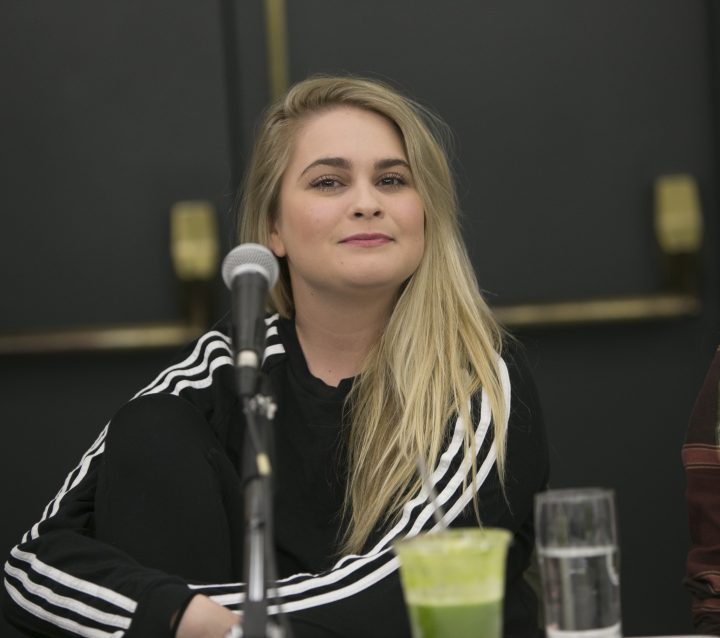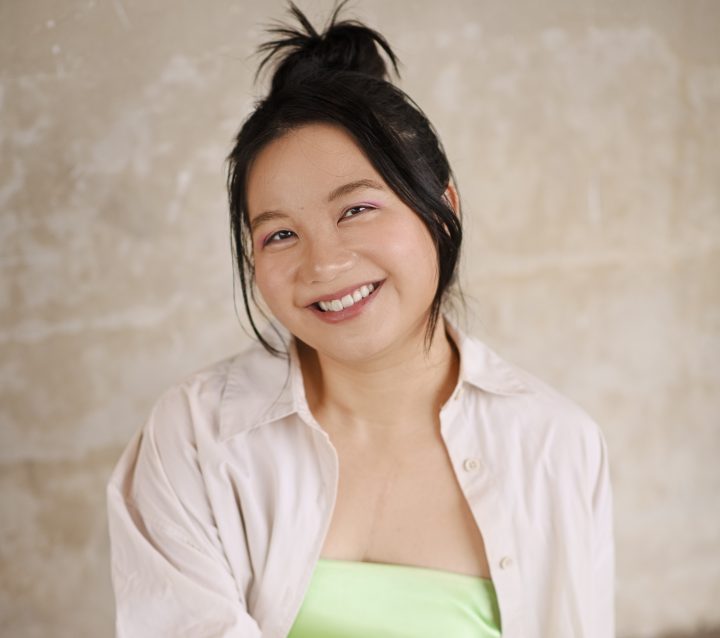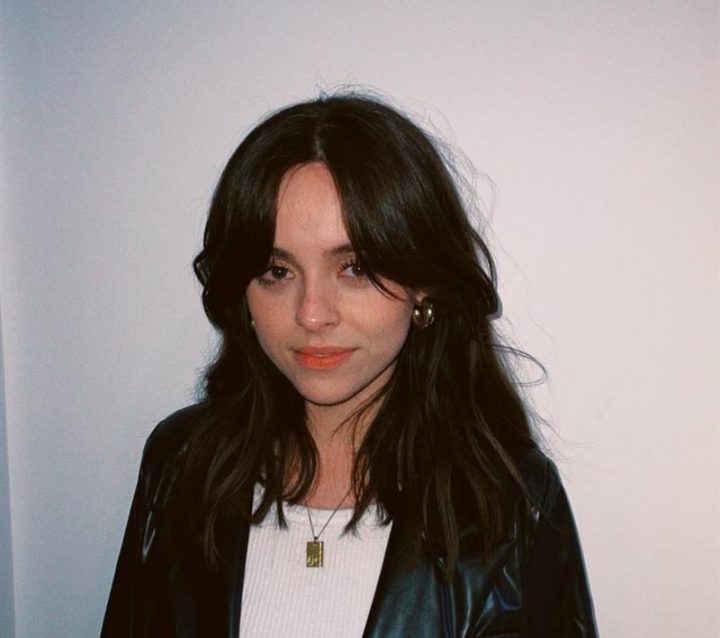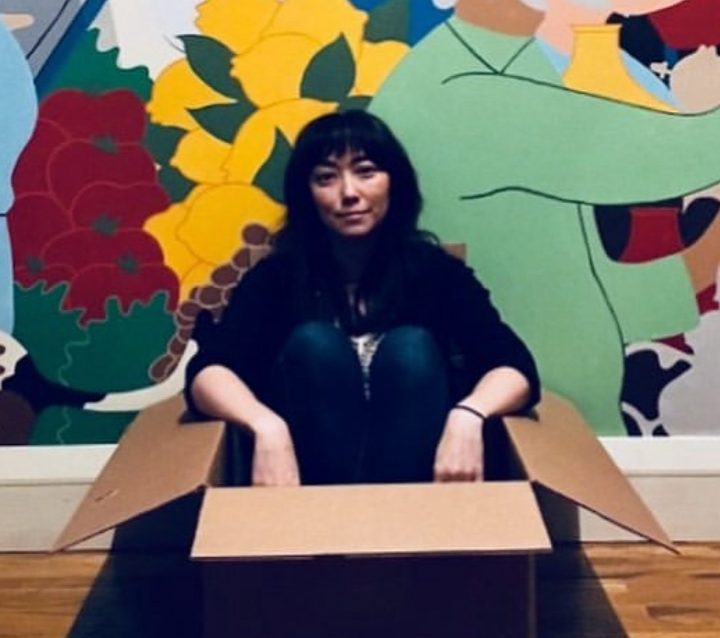
Amber, you’re currently A&R and Social Media at Saddle Creek. Tell us your story! Where did you grow up and where do you now call home?
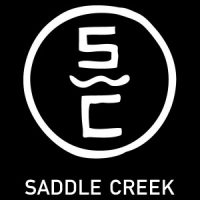
I grew up in New Orleans, Louisiana at the mouth of the Mississippi. I now live in Los Angeles. I’ve been here for several years after short stints in Chicago IL and San Francisco CA. I never thought I’d live in LA as it’s the antithesis of the place I love most (New Orleans), but it’s a really convenient place to do my job. Everyone comes through.
What I like most about it: in as little as a ~30 minute drive, I can be on a beach, underneath a waterfall, on top of a mountain, or in the middle of a forest. Endless day trips!
For those who are unfamiliar, tell us a bit about Saddle Creek, what artists do you work with/have you worked with?
Saddle Creek has been around over 20 years, started in Omaha NE, and was historically home to bands like Bright Eyes, Cursive, The Faint, Rilo Kiley, Azure Ray and more. I’ve only been at the label for almost a year and a half, so I’m still relatively new to the family. I’ve always regarded S/C as the gold standard for independents – precious with their roster and caliber of signings, morally sound and community driven. They have a strong sense of identity but aren’t afraid to stray from that or experiment when it feels right. Their focus has always been on real writers, songs that say something. Career artists with staying power and an ability to make us feel something.
My intention joining the team was to expand that vision and continue to encourage a renaissance of sorts at the label, something that started really before I got there with bands like Big Thief and Hop Along. Building on that, I’ve welcomed Stef Chura, Young Jesus, Tomberlin and Black Belt Eagle Scout into our family. While their philosophies on music and life are consistent with the label’s history, I believe they all sonically push our boundaries in different ways, respectfully. More of that is the goal — a continuously evolving, diverse and conscious label whose artists and staff revere craft as much as they do kindness.
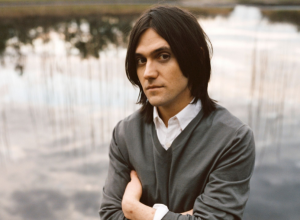 Bright Eyes
Bright Eyes
Tell us about you role, what does your day-to-day entail?
I’m sure most people with a job similar to mine would tell you that no day is the same. And they’re right. I used to work at a bigger label called ANTI-, and it was more predictable on a day to day basis because it’s much more lane-oriented and systematic. I appreciate a smaller company because everyone wears a few different hats, allowing us all to be involved in a deeper and more conscious way. It keeps things interesting, and I feel like I’m constantly learning.
The morning is usually spent combing through email, checking for fires, then making a list of priorities for the day. Does a new band without a manager need a booking agent first? Then my day is spent crafting several different pitches to different agencies. Does a new band want to work with a producer for the first time? Then my day is spent talking to them on the phone about what they want out of that, then emailing their music to managers, producers and artists to gauge interest. Does my marketing person need a better understanding of a new signing? Then part of my morning is spent discussing the band with her, what they stand for, what they like, what they don’t like, etc. Does a band have an aversion to social media? Then my afternoon is spent talking to them about how to promote their music in a way that makes them comfortable, which inevitably turns into a conversation about how the Internet is ruining our lives. Haha.
Everyday is filled with giving intermittent feedback about mixing, sequencing, focus tracks, artwork, merch ideas, music videos, the list goes on. I don’t limit myself to one thing, I’m a sounding board for the artist in whatever capacity they need me to be. Usually my late afternoons and evenings are spent listening to demos, hundreds of them. I have an open door policy — anyone can send me anything. That’s my job. But it makes it hard to keep up. I only have time to listen to a minute of everything I get, but I listen to it all. IN SHORT, there is no concise answer to this question and anyone who has one is full of it!
How did you get your start in the music industry, how did you get to where you are today?
Sometimes I feel like I know, when I am stressed and overworked. But in the more celebratory times, I feel like I just woke up from a coma in someone else’s body with no idea how I got here at all. Does that make sense? I grew up in a musical fantasy land with an instrument in hand – the South is a treasure trove of talent. It’s in my blood and I consider it a necessity to survive. I did not really know about the ‘industry’ growing up in New Orleans — industry folks take a backseat to the artists there which is how it should be. It always felt like that particular community was commanded by the artists – they’re the gatekeepers, they’re the bosses. I think that outlook gave me a good foundation to create respectful, caring and sincere relationships with the artists I work for.
When my anxiety disorder made it clear as a teenager that a career playing music wasn’t in the cards, I sought out other ways to be involved behind the scenes. After various internships, I moved to San Francisco and worked in distribution. I was bored and felt completely unchallenged, and the wealth disparity of that town had already forced a majority of the artistic community away. Feeling disconnected, I moved to LA and I eventually landed at ANTI- where I learned, under my mentor Andy Kaulkin, that a truly compelling and fulfilling job in the ‘industry’ was possible.
There I assisted him before moving into an A&R & Digital role and working for both longtime heroes and developing artists alike – from Tom Waits to Girlpool. Andy is a true creative, completely unconcerned with anything but the music and what inspires the artists he loves. I was pretty allergic to the idea of being a part of “the music industry” before meeting him. He showed me that real, well-intentioned people exist within it. Although, he DID tell me to never give interviews, so I’m proud to acknowledge that I’m still paving my own way.
I did not really know about the ‘industry’ growing up in New Orleans — industry folks take a backseat to the artists there which is how it should be. It always felt like that particular community was commanded by the artists – they’re the gatekeepers, they’re the bosses.
What issues do you feel the North American music industry is currently facing and how do you think these could be changed and improved?
If you want me to speak on the continent as a whole in terms of logistics, the question is probably better suited for a retail or distribution person — someone who knows the ins and outs of streaming and sales in different territories. I try not to concern myself with a lot of data and analytics, as it distracts me from my real job.
However, as it relates to America specifically, our industry faces the same issue that every other American industry faces: insularity. Thinking we are the center of the universe, or really that we ARE the universe. Unchecked ego. Greed. Too much money shared between too few people. Consolidation of indies, sharing business practices that mirror majors. The belief that everything starts here, happens here and should come here. I don’t have answers to these problems, and if anything, I’ve contributed to them in passive ways myself.
I want to work with more artists outside of NA, and I hope to do so in the years to come. I try to always promote music from our label channels that we did not put out. It’s healthy, as a company, to support and encourage art whose success is in no way related to our own well-being. Everyone should make themselves uncomfortable. Don’t let distance or a language barrier or a standard practice keep you from connecting with humans outside of your circle.
Have you had to overcome any challenges or adversity in your career, and if so, how did you approach them?
Any woman who tells you they haven’t faced challenges or adversity in their music career is only doing so to serve themselves and in doing so, they are holding up the patriarchy by supporting its very values and biases. Yes! I’ve dealt with some unbelievably shitty challenges! Bosses who made me lose sleep, who made me scream, who made me feel worthless or afraid, who were so threatened by my very presence that they went to great lengths to make my days feel never-ending. They were all men. And the ugly truth is — approaching these problems gently has never worked for me.
I’ve survived and gotten where I am by holding back tears and demanding more, by negotiating my worth in numbers (the only language some of them understand), by owning my work and refusing to let anyone else take credit for it, by demanding the title congruent with the work I was doing, by calling out bullshit politics when I see them, by yelling back when I’m yelled at, and by remaining true to the values instilled in me early on. These things were almost never the easy way out of career conflict, but always 1000% worth it. Most importantly, loving and caring for my day one support system – my friends, family and the music community I grew up in. Those people make the insurmountable tasks and seemingly impossible conversations, possible.
Do you feel that higher education is necessary to work in the music industry?
Absolutely not. I have a degree in Literature which I pretty much got it accidentally. It helped expand my speaking, writing and communication skills. That’s where my education has become most applicable to my job even though I still LOVE to write in incomplete sentences and half thoughts. But not one job I’ve had in music has even asked me about my college degree, much less cared.
Don’t go into debt to study music business. Work at venues, get an internship, go to shows and talk to people. Bartend. I always joke that bartending for years prepared me more for my current job than college ever did, and that has little to do with the drinking part.
I’ve survived and gotten where I am by holding back tears and demanding more, by negotiating my worth in numbers (the only language some of them understand), by owning my work and refusing to let anyone else take credit for it, by demanding the title congruent with the work I was doing, by calling out bullshit politics when I see them, by yelling back when I’m yelled at, and by remaining true to the values instilled in me early on.
Any advice for people wanting to work in A&R?
Bartend. Just kidding. I was going to say something about how important it is to have a work/life balance, but then realized I haven’t figured that out yet. I have time. Ask me in a few years. Other than that, kindness and compassion first. Artist over industry. Listen to everything. Be curious. Manage expectations (yours and others.)
Give us your take on the Australian music scene. What Australian artists are on your radar? Any artists you’re keen to catch at BIGSOUND?
Seems to be so much happening in Australian music right now. Of course I’ve always loved a good King Giz or DZ Deathrays show but so many artists and songwriters emerging lately have blown me away like Sampa, Jen Cloher, Alex Lahey and Stella Donnelly.
I’ve liked what little Rolling Blackouts I’ve heard, but need to dig into it more. Oh! I love Laura Jean – really smart pop music is often a delicate balance and she does it well. Which reminds me of another favorite right now — Hatchie. Obviously a lot of these artists already have a presence over here which is why they’re on my radar. Excited to learn about some even newer ones.
I haven’t had time to go through the lineup quite yet but planned to this week. Hopefully I’ve already named a couple people playing? I plan to listen to everything and have a list of things I wanna see. I’ve been procrastinating, unsurprisingly.
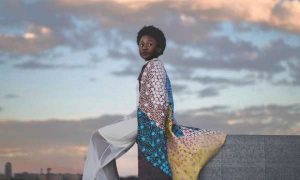 Sampa the Great
Sampa the Great
Who are your role models in the industry whether they be international/American?
My peers are my role models. The other people slogging it, making ends meet, devoting all of their time to an artists’ vision while remaining compassionate and understanding. A couple of people I’ve admired both up close and from afar — Fabi Reyna – the founder/editor of She Shreds Magazine – Bronte Jane – A&R at Third Side Music, Heba Kadry – mastering genius, Rachel Weldon – artist whisperer/manager, Brianna Liebling – booking agent at Billions. There are so many more. They know who they are.
What is your go-to Karaoke song?
I LOVE KARAOKE but I am terrible. I have a few: Oasis – Don’t Look Back in Anger, Natalie Imbruglia – Torn, Savage Garden – Truly, Madly Deeply *both parts*, Billy Joel – It’s Still Rock n Roll to Me OR Movin’ Out (Anthony’s Song) depending on how I’m feeling. So, nothing cool. I have a friend Carly who does Kate Bush – Wuthering Heights SO WELL and it’s my favourite thing about her. Very impressive.
